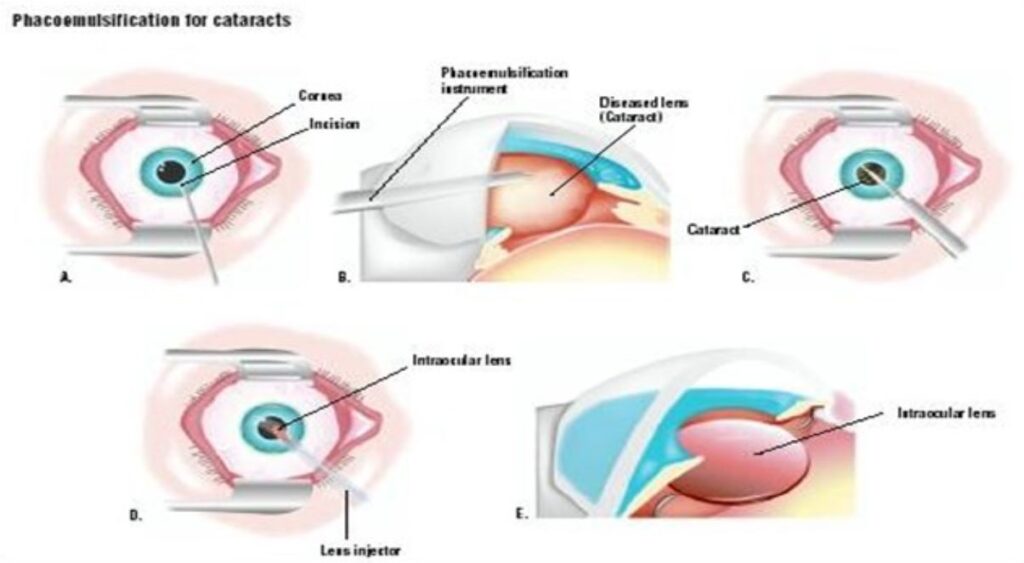Cataracts are a common eye condition that can significantly affect your vision, especially as you age. But what exactly is a cataract, and how do you know if you need cataract surgery? In this comprehensive guide, we will explore the symptoms, types, and treatment options for cataracts, including finding the best cataract surgeons near you.

What is a Cataract?
A cataract is a clouding of the eye’s natural lens, which lies behind the iris and the pupil. This cloudiness can lead to blurred vision, making it difficult to see clearly. Cataracts develop slowly over time and are often associated with aging, but they can also result from injury, certain medical conditions, or prolonged use of specific medications. In some cases, cataracts may form in both eyes but typically do not develop at the same rate.
Symptoms of Cataracts
Recognizing the symptoms of cataracts is crucial in seeking timely treatment. Here are the most common signs:
Blurred Vision: Objects may appear fuzzy or out of focus.
Difficulty with Night Vision: Seeing in low light or at night becomes challenging.
Sensitivity to Light: Bright lights may cause discomfort or glare.
Seeing Halos Around Lights: Halos or rings of light may appear, particularly at night.
Frequent Changes in Prescription Glasses: You may find that your eyeglass prescription needs to be updated frequently.
Fading or Yellowing of Colors: Colors may appear less vibrant or yellowed.
If you experience any of these symptoms, it’s essential to consult with a cataract specialist. Searching for “cataract surgeons near me” or “eye specialist for cataract
Types of Cataracts
- Nuclear Cataracts: This type forms in the center of the lens and is most commonly associated with aging.
- Cortical Cataracts: These cataracts begin at the edges of the lens and extend towards the center, creating a spoke-like appearance.
- Posterior Subcapsular Cataracts: Developing at the back of the lens, this type can progress rapidly and is often seen in people with diabetes or those taking high doses of steroids.
- Congenital Cataracts: Some babies are born with cataracts or develop them during childhood, often due to genetic factors or infections during pregnancy.
Understanding the type of cataract you have is important in determining the most appropriate treatment.
Who Needs Cataract Surgery?
Cataract surgery is recommended when cataracts interfere with your daily activities, such as reading, driving, or recognizing faces. If your vision is significantly impaired and glasses or contacts are no longer effective, it may be time to consider surgery. The best cataract surgeons in India, including the top specialists in Punjab, can offer advanced treatment options like bladeless cataract surgery or robotic cataract surgery, which provide greater precision and faster recovery times.
Risks and Benefits of Cataract Surgery
Like any surgical procedure, cataract surgery has its risks and benefits. However, it is generally considered safe and effective, with millions of successful surgeries performed worldwide each year.
Benefits of Cataract Surgery:
- Improved Vision: Most patients experience a significant improvement in their vision, allowing them to resume normal activities.
- Enhanced Quality of Life: Clearer vision can greatly enhance your ability to enjoy everyday activities.
- Increased Safety: Better vision reduces the risk of falls and accidents.
Risks of Cataract Surgery:
- Infection: Though rare, there is a small risk of infection after surgery.
- Inflammation: Some patients may experience swelling or inflammation, which is typically manageable with medication.
Conclusion
If you are experiencing symptoms of cataracts, it’s important to consult with Dr.rajan a cataract surgery specialist near you. With options like bladeless and robotic cataract surgery, the best eye doctors in Punjab and across India can provide you with the care you need to restore your vision. Understanding the types of cataracts and the benefits of surgery can help you make an informed decision about your eye health.


